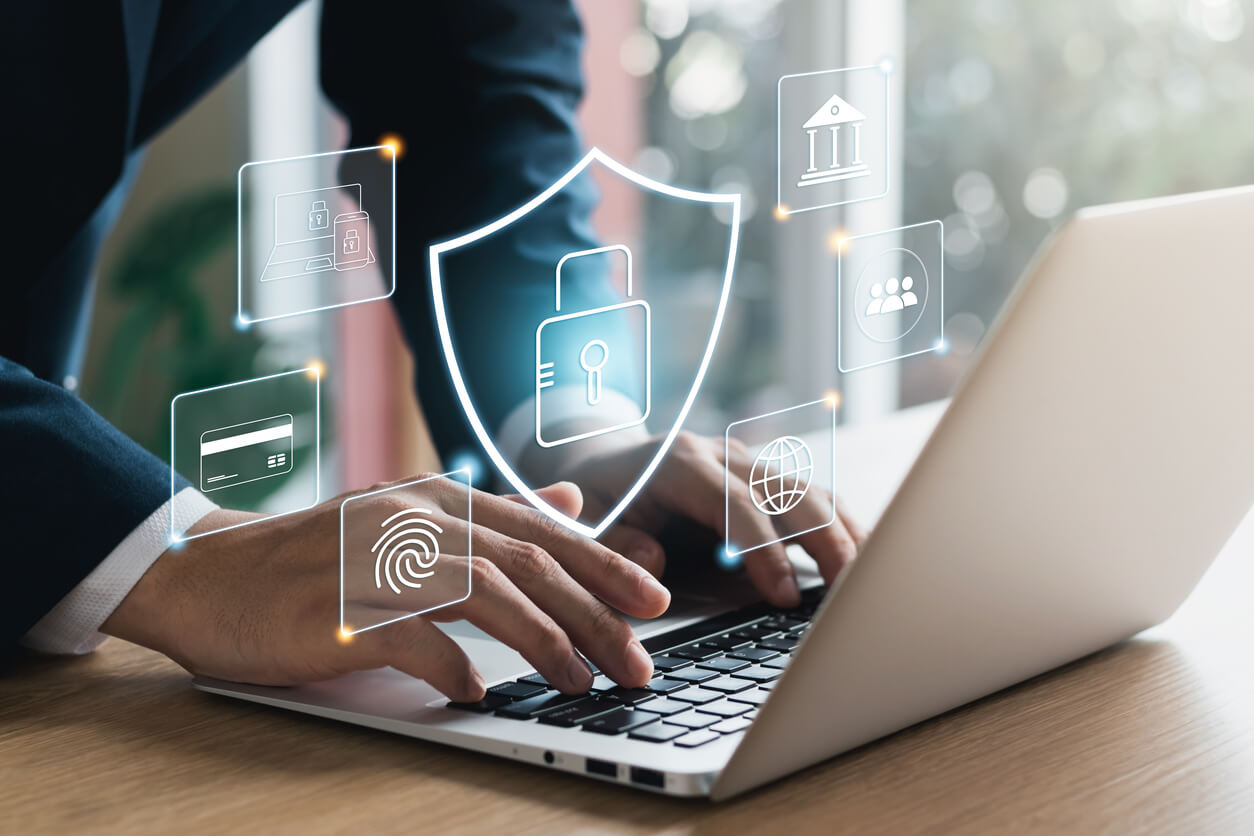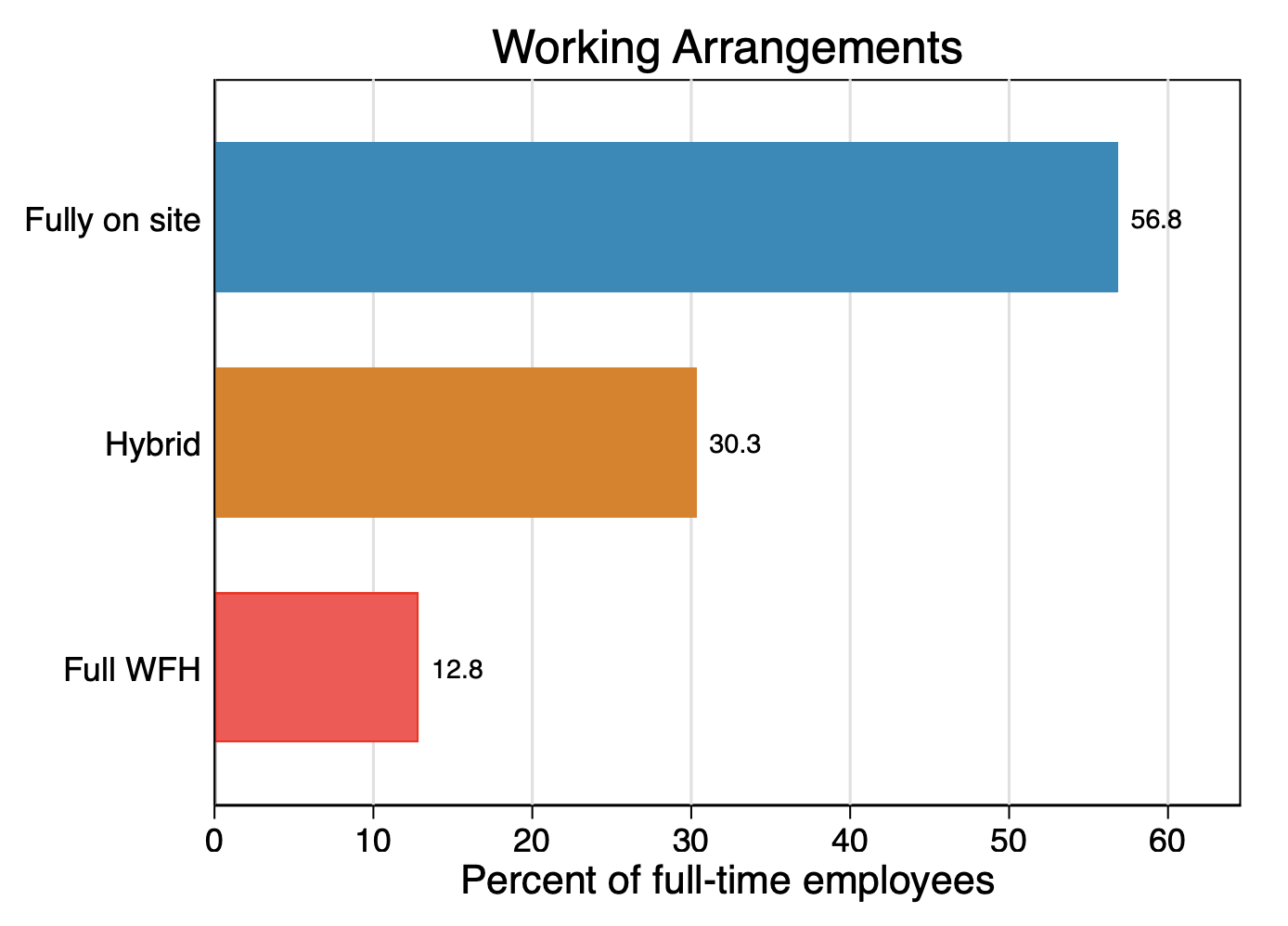
Whether working at home or in the office, laptops are a very necessary piece of equipment for employees. But these devices aren't only tools – they are also homes for sensitive information and valuable company property.
With more and more employees working remotely after the pandemic; in fact, as of September 2023, 28% of paid workdays were worked remotely, and companies are investing more in laptop maintenance – this includes getting back the systems in the laptop return shipping box.

Whether ending an employment contract or even upgrading to a newer laptop, businesses must have their process in place. This will minimize the risk of loss or damage in transit to zero when handling employee laptop returns.
In fact, a Statista report confirms that during the first quarter of 2023, over six million data records were made vulnerable through ever-prevalent data breaches, making laptops a major security risk. At the same time, a report also confirmed that 21% of all folders in a typical company are open to everyone leading to malicious attacks.
Also, crucially important is regulatory compliance. Regular audits can ensure a business is compliant with standard security. A report confirmed that only 52% of companies conduct regular security audits. Frequent audits can ensure that your company is in compliance with all applicable laws and regulations.
This compels companies to put in place their laptop return policy on priority. Let’s examine laptop return pitfalls.
Safeguarding Physical Assets
The security of physical assets, especially laptops, is a major factor in the smoothability of business operations. After these devices are returned (some use remote laptop retrieval shipping providers like Remote Retrieval), it is of course extremely important to minimize the risk in transit for them.
You’d be amazed to learn that a laptop is stolen every 53 seconds in the United States. 34% of organizations have experienced nearly 5,500 cases of laptop theft annually. This requires the use of safe packaging materials plus dependable courier services offering to handle delicate equipment.
At the same time, various studies verify, anywhere from 7% to 11% of online orders arrive damaged that customers ordered. Then how can we imagine that companies won’t expect the damaged return parcels of laptops when handling employee laptop returns?

Once received, it is necessary to know how to properly handle and store the returned laptops in order that they do not suffer damage – one of the laptop return pitfalls. Businesses need to have specific areas of safe storage, away from other things stored there so that the computers can be placed until redistribution is complete or they are recycled and disposed of.
This not only protects the tangible assets but also any remaining data that might still reside inside the device – it emphasizes the importance of equipment return boxes.
Another important step in all this is the establishment of a strong tracking and verification system for returned assets. So could be a kind of system involving barcoding, recording serial numbers, or even RFID tagging.
Specialized courier services for electronics returns like Remote Retrieval can decrease laptop damage incredibly compared to standard services. These methods enable the exact tracking of each and every PC, from leaving its former owner to returning once again to business premises in equipment return boxes. This helps to maintain a clear chain of custody and furnishes much data for inventory control.
Protecting Sensitive Data
When discussing laptop return pitfalls, for businesses, especially those handling returned laptops with vast amounts of sensitive customer and business information contained within them this is obviously an enormous concern. However, on their return in the laptop return shipping box, it is necessary that strict data erasure procedures are established and followed.
The costs can be massive for businesses at times. A report confirmed that The average cost of a data breach is $4.24 million.
Also, businesses should actively take steps to secure any data stored on the laptops. For example, the imposed information access limitations could be achieved via encryption technologies or other kinds of data obfuscation that are not present when the device is in use to prevent unauthorized individuals from obtaining any meaningful information.
Further, restricting access to sensitive information by having employees use strong passwords can add another barrier against intrusion. Unfortunately, 46% of employees admit to using weak passwords at work – also one of the overlooked areas of security in employee laptop returns.
In addition, along with returning in equipment return boxes, it is necessary to adopt strong data security principles in order to avoid unauthorized access. This can involve a mix of processes, policies, and technologies.

For instance, using two-factor or multi-factor authentication can greatly improve the security of devices. And businesses have not been prioritizing this feature lately. Almost half of the businesses lack a multi-factor authentication process for employee devices.
Being current is also a good way to guard important data. In fact, many updates include security patches of one kind or another.
Ensuring Regulatory Compliance
A business must ensure regulatory compliance. This is particularly the case when dealing with sensitive data as is usually involved in a company and handling laptops. Data handling and privacy must be strictly adhered to industry-specific regulations.
Surprisingly, experts discussed that hundreds of thousands of businesses are not fully compliant with data privacy regulations. In fact, Google received a €50 million fine — the highest GDPR fine, issued by the French regulator, CNIL.
Common standards include specifying data encryption before transmission and even erasing all data from devices when they are returned in a laptop return shipping box.
But even apart from data privacy regulations, when dumping or recycling laptops businesses still need to adhere to environmental laws. These rules are designed to make sure that electronic waste is handled in an environmentally sound way so as to minimize damage.
In fact, did you know that e-waste is the fastest-growing waste stream in the world, with over 50 million tons generated annually, United Nations Programme shared.
All relevant regulations must carefully be observed, and so regular audits are essential for ongoing compliance. Such audits should review data destruction procedures as well as the scrapping or recycling of physical property. They give an opportunity to find and remedy compliance problems early on, reducing the risk involved.
Credible sources confirmed that only 22% of organizations perform regular compliance audits. A deeply concerning statistic with regard to laptop return pitfalls and employee laptop returns.
Maintaining Organizational Reputation
In this era of digital transformation, one important component in strategy for maintaining organizational reputation is carrying out secure laptop retrieval. The chief goal in the prevention of data breaches is to protect the reputation of the company. A single slip, like mishandling a returned laptop and causing data leakage or a criminal incident Following missteps such as this can really affect the image of the company.
Interestingly, Pew Research confirmed that 64% of consumers have stopped doing business with a company due to concerns about their privacy practices and that businesses should do more to protect it.
Businesses have to show that they are serious about customer privacy and data security. This means providing for securely deleting data from returned laptops in equipment return boxes that have been reused or recycled. Properly communicating these practices boosts customer trust and makes clear the degree of care that we put into protecting them.
Reputation matters to such a level that a KPMG report stated that 40 percent of consumers don’t trust companies with their data.
Therefore, having a secure laptop retrieval process is about more than good asset management. They're also an important factor in maintaining organizational credibility and image; in developing a customer life-cycle relationship founded on trust and security; and in enhancing the reputation of the company itself.
Today, in this digital age securing IT assets from initial procurement to after their return – in the laptop return shipping box – is an issue that no business can negotiate away.
Efficiency and Cost Management
A smooth laptop recovery process reduces the amount of money lost through broken or stolen laptops. Improper handling even causes assets to be placed in the wrong places, which results in unnecessary purchase of replacement goods.
The businesses have to bear the brunt since the average cost of a lost or stolen laptop is $1,500 – imagine if it keeps piling up.
Proper tracking and management of returns is the best way to avoid such losses in laptop recovery pitfalls.
Simplified laptop return procedures also improve efficiency. Streamlining procedures cut down the time spent processing returns and reaping savings that can be used to better effect elsewhere. With clear steps and directions, returning can be a smooth journey.
And this is confirmed by credible sources that businesses can save up to 30% on IT asset costs by implementing strong return processes.
Making greater use of technological tools is another way to enhance efficiency and cut costs. With no human error, automated return processing systems provide reliable tracking and management of returned laptops. Such systems can also provide real-time insight into the whereabouts of returns, for effective management and rapid resolution.
This is because automated processes are proven to boost productivity by 30%.
Employee Accountability and Training
This is the most important step in protecting company assets. This involves making employees responsible for getting laptops back safely. But if there are regular checks and balances, then assets can be returned intact. This will help in avoiding the laptop return pitfalls.
This is extremely important because one in four companies globally has to bear the loss from data breach, consequently losing up to 20 million dollars.
Through regular training sessions one can help employees understand return procedures. This is because well-informed employees are more likely to follow procedures correctly, avoiding the chances of mishandling or damage.
For companies, creating a climate of accountability and supplying enough pre-training can guarantee fast laptop returns with improved IT asset management.